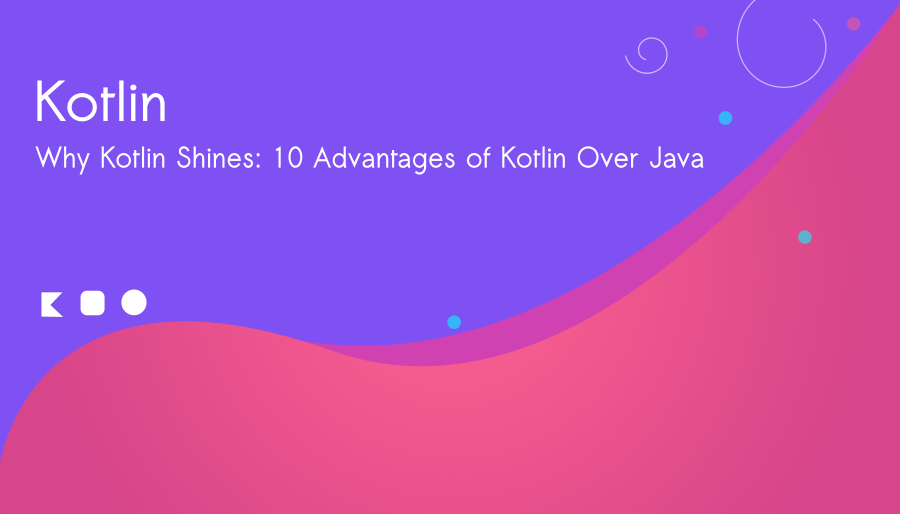Why Kotlin Shines: Top 10 Advantages of Kotlin Over Java
In the fast-evolving world of software development, languages play a pivotal role in determining productivity, code quality, and overall developer satisfaction. One language that has been gaining significant attention in recent years is Kotlin. Born out of the desire to improve upon Java’s shortcomings, Kotlin offers a refreshing array of advantages that make it a standout choice for modern development. Let’s unfold top advantages of Kotlin language.

Top 10 Advantages of Kotlin
1. Conciseness – We hate boilerplate code!
Kotlin reduces the boilerplate code that Java is notorious for. It’s astonishing how much more concise Kotlin is while maintaining readability. This brevity speeds up development, reduces the likelihood of errors, and makes the codebase easier to maintain.
2. Null Safety
Kotlin tackles one of the most common pitfalls in programming – null references. With Kotlin’s type system, nullable and non-nullable types are explicitly defined, significantly reducing the risk of null pointer exceptions, which are a common headache in Java. Read more about Kotlin’s Null Safety.
3. Smart Type Inference
Kotlin’s type inference is smart, which means you don’t need to write lengthy type declarations. The compiler can often figure out the types, making your code cleaner and less cluttered.
4. Extension Functions
The extension feature enables you to add new functions to existing classes without modifying their source code. It’s like having the power to enhance built-in classes and libraries, making your codebase more expressive.
5. Functional Programming Support
Kotlin embraces functional programming concepts. It offers first-class functions, higher-order functions, lambdas, and more. These features facilitate cleaner and more modular code, allowing you to write powerful, expressive, and functional code with ease.
6. Interoperability
Kotlin is fully interoperable with Java. You can seamlessly use existing Java libraries in your Kotlin codebase and vice versa. This compatibility makes it easy to adopt Kotlin incrementally, making it a fantastic choice for projects with an existing Java codebase.
7. Coroutines
Kotlin’s built-in support for coroutines simplifies asynchronous programming. Coroutines make it easier to write non-blocking, asynchronous code without the complexities and callback hell that Java developers often face.
8. Readability
Kotlin emphasizes clean and expressive code. It encourages good coding practices and enforces a consistent style, leading to code that’s more readable and maintainable.
9. Modern Language Features
Kotlin continually evolves to embrace modern programming paradigms and language features. This means you’ll have access to the latest and greatest tools to create efficient, elegant code.
10. Community and Adoption
Kotlin’s popularity is on the rise. With strong support from JetBrains, Google (for Android development), and a growing community, you’ll find ample resources, libraries, and tools to aid your development journey.
In conclusion, while Java has been a reliable workhorse for many years, Kotlin takes the best of what Java offers and adds numerous enhancements, making it a compelling choice for modern development. Its concise syntax, null safety, functional programming support, and seamless interoperability with Java make it a language that truly shines in the contemporary software development landscape.



